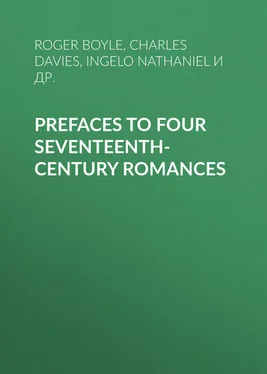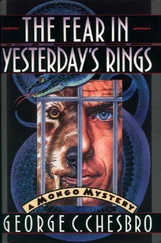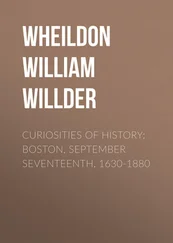George Mackenzie - Prefaces to Four Seventeenth-Century Romances
Здесь есть возможность читать онлайн «George Mackenzie - Prefaces to Four Seventeenth-Century Romances» — ознакомительный отрывок электронной книги совершенно бесплатно, а после прочтения отрывка купить полную версию. В некоторых случаях можно слушать аудио, скачать через торрент в формате fb2 и присутствует краткое содержание. Жанр: foreign_antique, foreign_prose, на английском языке. Описание произведения, (предисловие) а так же отзывы посетителей доступны на портале библиотеки ЛибКат.
- Название:Prefaces to Four Seventeenth-Century Romances
- Автор:
- Жанр:
- Год:неизвестен
- ISBN:нет данных
- Рейтинг книги:5 / 5. Голосов: 1
-
Избранное:Добавить в избранное
- Отзывы:
-
Ваша оценка:
- 100
- 1
- 2
- 3
- 4
- 5
Prefaces to Four Seventeenth-Century Romances: краткое содержание, описание и аннотация
Предлагаем к чтению аннотацию, описание, краткое содержание или предисловие (зависит от того, что написал сам автор книги «Prefaces to Four Seventeenth-Century Romances»). Если вы не нашли необходимую информацию о книге — напишите в комментариях, мы постараемся отыскать её.
Prefaces to Four Seventeenth-Century Romances — читать онлайн ознакомительный отрывок
Ниже представлен текст книги, разбитый по страницам. Система сохранения места последней прочитанной страницы, позволяет с удобством читать онлайн бесплатно книгу «Prefaces to Four Seventeenth-Century Romances», без необходимости каждый раз заново искать на чём Вы остановились. Поставьте закладку, и сможете в любой момент перейти на страницу, на которой закончили чтение.
Интервал:
Закладка:
Robert Boyle, author of Boyle’s Law, Fellow of the Royal Society, and like Roger Boyle, a son of the great Earl of Cork, makes an odd appearance in this company. His Preface to Theodora and Didymus (1687) has psychological rather than historical significance. He, too, considered gravely the claims of history against the rival attractions of fiction and imagination but his remarks have the merit of focussing a problem which was of immediate importance to him and called for nicety and skill in finding a solution. The story he was contriving into a “voluminous romance” was one of tragic import. There is nothing that savours of Cyrus or Oroondates. “True examples,” he maintains, “do arm and fortify the Mind far more efficaciously than Imaginary or Fictitious ones can do.” Yet how could this effect be realized when the scanty materials provided were insufficient to give body to his book? Besides, the nature of the theme forbade those “Imbellishments which, in other themes, are wont to supply the deficiencies of the matter.” Boyle is not won over by the siren voices which might have urged him to give imagination full rein. His integrity makes such a course impossible, but he fully realizes the nature of his quandary. Theodora’s sad choice between death or ravishment and her request to Didymus that he should kill her with his sword rather than let her be dishonoured, opened a new vein for the sentimental school and set a problem in speculative ethics of which Richardson, with his nicely adjusted views of heavenly rather than poetic justice, would exploit with resounding success in Clarissa Harlowe . There is a hint, even in Boyle, that these vicarious pleasures are concocted to a recipe that is intended to please the guests at the feast rather than the cooks who prepared it. Defoe’s principle that all should be left to “the gust and palate of the reader” receives perhaps its first expression here and helped create a sense of the relativity of all values without which, in every age, the novelist would find it difficult to pursue his avocations or stimulate his readers’ interest.
Charles Davies
University College of N. Wales, Bangor
THE PREFACE
Though a Preface before a booke of this Nature is seldome writt, and seldomer Read, yet I could not herein Confine my selfe unto the Examples of others, but have rather elected to decline a Generall Practice, to follow my owne Inclination, than observe one, to immitate the inclination of others.
Amongst my many Faults, I know none which had a lesse Disputed Assendent over me, then a Detestation to Readeing and Studdy, in which vast unhappinesse I continued ’till I went to see the VVorld, and makeing some Residence in France, I assotiated my selfe with Persons of my owne Age, where I soone found, that he who was Ignorant of the Romances of these Times, was as fitt an Object for VVonder, as a Phylosopher would be, who had never heard of Aristotle, or a Methematician of Euclyd. This inforc’t me to reade, Necessity performing what should have sprunge from a handsomer Principle. In the Perusall of those Bookes, I mett with the names, & some of the Actions, of those Hero’s, whome I had heard off, in the Scoole; This gave me a passionate desire to seperate the Truth from the Fixion, in the effecting whereof, I became as much a Freind to readeing, as I had bin an Enemy to it. This experiment I esteem’d an ingratitude to Conceale; & I have cause to beleiue since Romances Acted a Cure upom me, thy cannot fayle of doeing the Like upon any other; & by the knowledge I haue of my selfe & according to a Proportionate Degree of operation, much more upon Any other, then they have done upon me.
All the Readers of Parthenissa may wonder at my makeing of Spartacus and Perolla contemporaries, & that Artabbanes & Spartacus should be the same Person &c. But I hope they will noe Longer doe so, when I Minde them, that I write a Romance, not a History, and that therfore though all I Relate be not the Truth, yet if a Part be, I performe more then what the Title of my Booke does confyne me to. The Latter of these they will finde I doe, in the warre of Spartacus; In the warre betweene Rome and Carthage called the second Punick warre; In the warre betweene the Romans, and the Parthians, and in the warre termed the Metrydatick; In the Relations whereof I have punctualy followed those Authors, who have most celebratedly bestowed the History of those Times to Posterrity, and where I have found any contradictions (as in most Historyes I have found some) I have gon according to the seeming’st Truth. Only in the second Punick warre, I have followed exactly Polibius, & the Excellent Sir VValter Rawly in who’s Generall History of the VVorld, I finde more Harmony then ever I did in any perticuler History, of any Part of it. But to Evidence Chronologie is not essentiall in Romances, Virgill (who writes a Romance in Numbers, & who is as Famous now, as he was in Augustus Times) makes Æneas and Dido Lovers, when according to most Chronologers the Troian Preceaded her, at lest two Centuries and a Halfe of Yeares; The Former Living in the Yeare of the VVorld 2771; and the Latter in the Yeare of the VVorld 3058, or as Alsted an Excellent Modern Chronologer will haue it, in the Yeare 3077. I Instance this for my Iustification, or at least to evidence I Err by a Famous and Authentique Example. Neither doe I thinke but such a Fault may be Pardonable, when by it I Present the Reader with two such signall, and True Historyes, as that of Hanniball, and that of Spartacus, which doe both contayne things worthy the Perusall, especially the Latter, which Past ages cannot Parralell, neither doe I beleive the Future will. The Reuolt of Matho & Spendius from the Carthaginians in Antient Times, and of Massaniello from the King of Spayne in the Present, though they are Admirable Actions, yet are rather Foyles, then Paralels to Spartacus’es, who from a private Slaue, after the winning of many a Battell brought the Empire of Rome to the Stake in One, in which had he had successe, Pompey might have Lost the Name of The Great, or else have had a better Title to it, then he Deriu’d from his Asian or Priattike Victories.
I shall not here tell you in what Places I have intrench’t upon, or borrowed of Truth, since that might silence a Curiossity, the raising wherof is one of my cheefest ends in writeing this Booke. Neither shall I here endeavour to Apologize for Romances, for though I thinke I could say somthing for them, yet I am certaine I can say more against them, & so much, that had I bin of the same Minde when this Romance was first Designed, as I am now of, at the finishing of the Fourth Tome, I had never begun the First; And if I should continue the two remaineing Last Tomes, it shalbe as a Penance for having writt the foure First. Yet I may say that this way of writing Romances is lesse ill, than any I have yet seene Originaly in our Language; for all that have bin presented to the VVorld First in English have bin Purely Fabulous; This contayning much of Truth ’tis like Ore in which the Refyner will have Drosse, and Mettle, and indeede almost the best Historians, differ herein, not in the Quallity, but the Quantity; at least as to the causes & retayles of VVars, sometimes even in the very events; Though many Historyans, write the same History, yet they write not the same things; now it being impossible that there should be but one Truth, ’tis as impossible that those Disagreeing writers should all write that Truth; which cleerely evinces, that Historyes are for the most Part but mixt Romances, and yet the Pure Romance Part, may be as Instructiue as, if not more than, the Historicall; since ’tis not the Truth of a wise Councell, or Ingenious Designe which inuites Men to an immitation thereof, but the Rationallity and Probability of it, whither it be reall or Imaginary; had the Histories of Cæsar or Hanniball bin as meere a fable as they are the Contrary we might yet have Deriu’d from thence as much instruction as wee now can, or doe. Besides, Romances tell us what may be, whereas true Historyes tell vs what is, or has bin, now what may be, is more vncircumscrib’d than what is, or has bin, and consequently affoards a Larger Feild for instruction, and inuention.
Читать дальшеИнтервал:
Закладка:
Похожие книги на «Prefaces to Four Seventeenth-Century Romances»
Представляем Вашему вниманию похожие книги на «Prefaces to Four Seventeenth-Century Romances» списком для выбора. Мы отобрали схожую по названию и смыслу литературу в надежде предоставить читателям больше вариантов отыскать новые, интересные, ещё непрочитанные произведения.
Обсуждение, отзывы о книге «Prefaces to Four Seventeenth-Century Romances» и просто собственные мнения читателей. Оставьте ваши комментарии, напишите, что Вы думаете о произведении, его смысле или главных героях. Укажите что конкретно понравилось, а что нет, и почему Вы так считаете.












